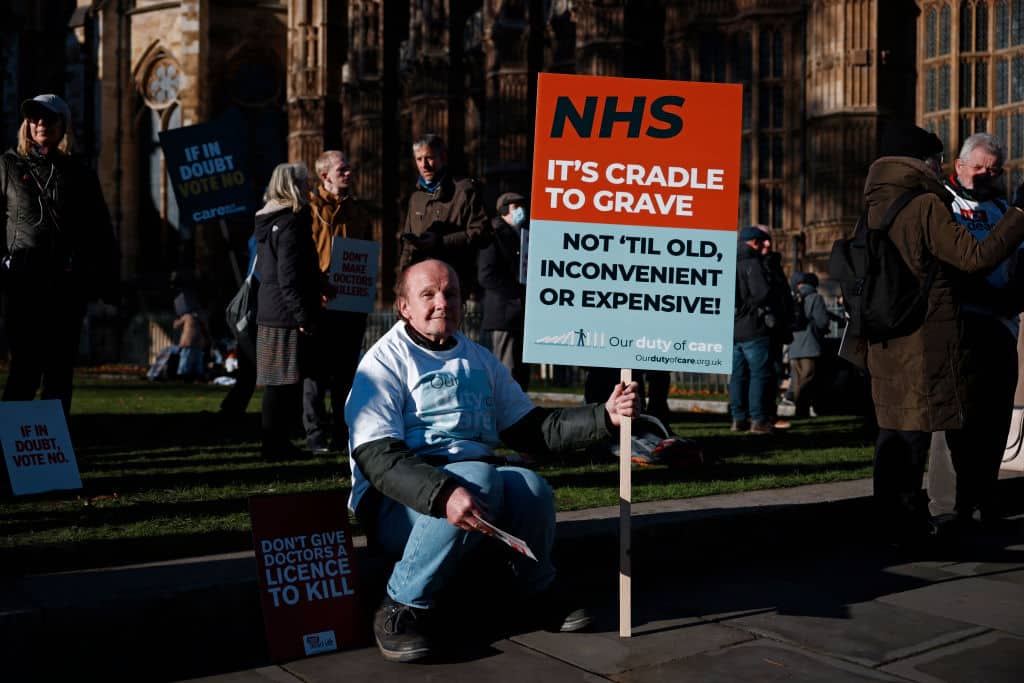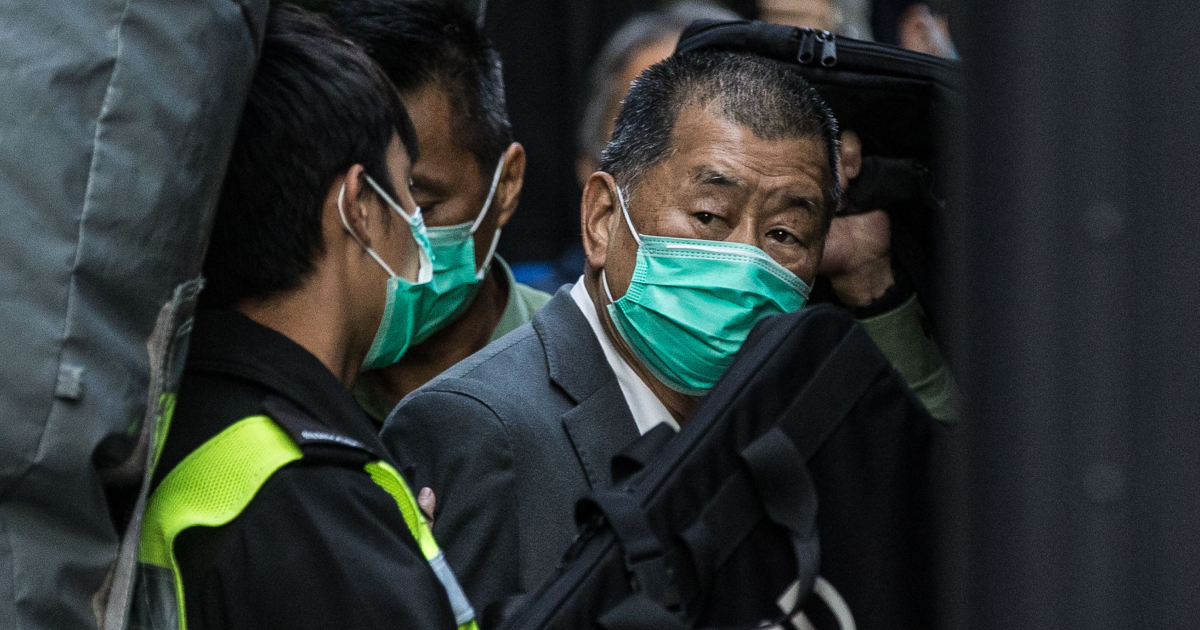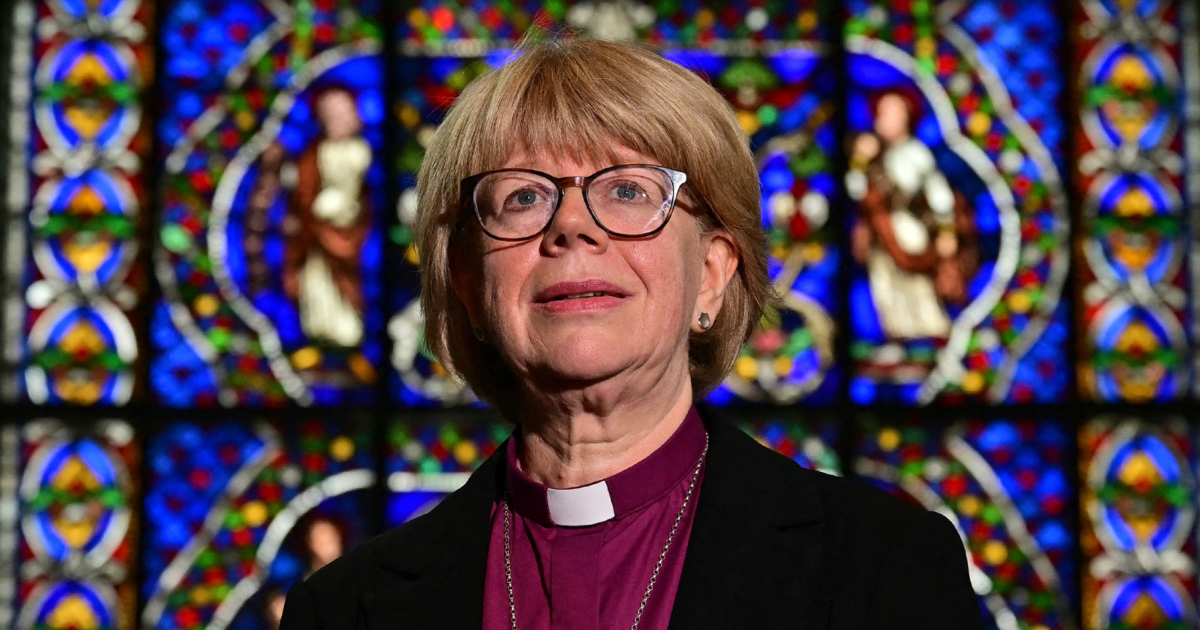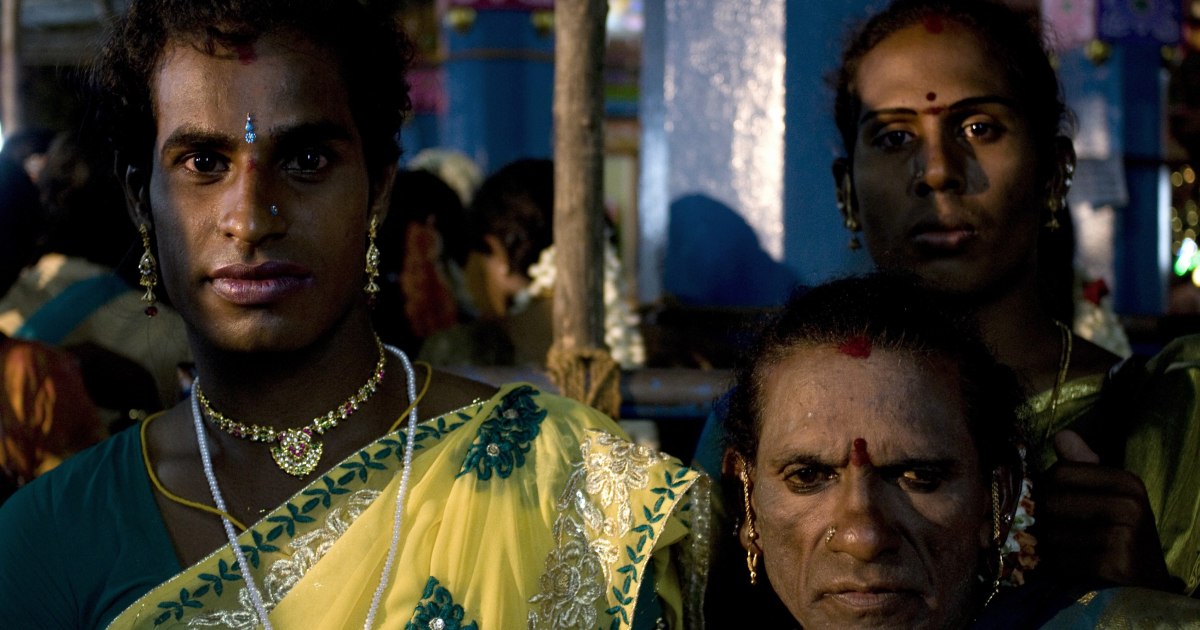On Friday, 29 November 2024, MPs in the United Kingdom voted in favour of the Terminally Ill Adults (End of Life) Bill.
It is difficult to know how to react to what can be considered one of the greatest betrayals of the vulnerable in society in recent history. The debate was riddled with falsehoods. The bill's advocates often, to use a 21st-century phrase, "gaslit" their opponents by claiming that where assisted suicide has become law—in 30 jurisdictions around the world—it has never been extended beyond its original intention.
Many, both in this publication and others, have provided robust and evidence-based arguments to refute this claim, so there is little need to go into it. However, to offer one example among many: in 2002, the Netherlands legalised euthanasia for adults with a terminal illness or those suffering unbearably without hope of relief. In 2023, the Netherlands legalised euthanasia for children aged one to twelve without their consent.
The debate fittingly ended with Kim Leadbeater standing and admitting to one of the many falsehoods that had peppered the proceedings. She had wrongly implied that serving members of the judiciary had expressed support for the bill. The Judicial Office wrote to her in real-time, clarifying that no such support had been given. She recanted her false statement and apologised for misleading the House, yet was bizarrely met with approving murmurs of “Hear, hear.”
I was fortunate to process the afternoon’s proceedings with someone more knowledgeable about parliamentary procedure and law than most MPs: Dominic Grieve. A former Attorney General, MP for Beaconsfield from 1997 to 2019, and a member of the King’s Counsel, few rival his credentials.
I asked him how likely it was that the bill would become law:
“At the report stage of the bill, when it comes back to the floor of the House for report and third reading, it is technically possible with a private member's bill that so much filibuster takes place, or so many amendments are tabled, that bills can be talked out.
“If it isn’t, it will go to the Lords. It is very difficult to judge what the mood in the House of Lords might be. Very technically speaking, the Lords could throw it out, and if the Lords do throw it out, well then that might delay it and, of course, it would have to be reintroduced and perhaps in a year's time people's opinions might have changed.
“But I think it's very unlikely not to become law because I think it's going to be very difficult now the second reading is through. The opponents may continue to object, but my experience with Parliament is that if you get the second reading and the principle goes through, there will be some people who are opponents who in future will abstain, and they will say, well, the House of Commons has pronounced on this, I'm not going to continue fighting this to the end.”
The affirmation of one of the UK’s most senior legal and political experts that this bill is likely to pass is deeply disheartening.
After the debate and my conversation with Grieve, I sat in a state of shock, and the words of a Rudyard Kipling poem came to mind.
In his poem If, Kipling writes:
"If you can bear to hear the truth you’ve spoken,
Twisted by knaves to make a trap for fools,
Or watch the things you gave your life to, broken,
And stoop and build ’em up with worn-out tools…
Yours is the Earth and everything that’s in it."
Many will resonate with the line about seeing the truth they have spoken—namely, that this bill, if passed, will begin the wholesale destruction and devaluation of human life—"twisted by knaves to make a trap for fools”. Organisations like Not Dead Yet and Right to Life, along with many others, have valiantly spoken the truth, only to see it twisted by MPs in a bid to convince their colleagues to vote for state-sponsored suicide.
Others who have devoted their lives to valuing and protecting the vulnerable may identify with Kipling's line: "watch the things you gave your life to, broken." The Association for Palliative Medicine of Great Britain and Ireland, thousands of healthcare professionals who opposed this bill, and the priests who have sat at people’s bedsides—all have had the principles they have dedicated their lives to shattered by the 330 MPs who supported this bill.
Yet Kipling offers guidance on how to face setbacks: if we can see things broken and "stoop and build ’em up with worn-out tools," then ours “is the Earth and everything that’s in it”.
How do we rebuild? First, we must continue opposing this bill as it makes its murky march towards becoming law. Write to MPs, share your views, and support organisations like Not Dead Yet. Though Grieve admits it is unlikely, others have noted that only 28 MPs need to switch sides to defeat the bill. The third reading offers an ember of hope.
Second, we must hold the deeply dishonest campaign to account. The narrative created by proponents of assisted suicide is that it is something the British public demands. The Daily Express recently ran a headline: “The people have spoken: Let’s hope this time someone is listening.” The headline referenced a report by More in Common, which claimed that 65 per cent of people support assisted suicide. What the Express failed to mention was that the same report found 74 per cent of the public do not believe the NHS is in a fit state to offer assisted dying. They also left out that, according to a survey of over 5,000 adults by the research group Focaldata, support for assisted suicide falls to 11 per cent when the public finds out what it actually entails.
But more than that, the idea that the government is supposed to act based on the whims of the people rather than the interests of the people opens the door to a wide range of consequences. The government is there to uphold the value of human life, even if society wants to disregard it, which, in this case, the evidence suggests it actually doesn’t.
Third, we must counter the proponents' disingenuous claim that the bill contains "robust safeguards" to prevent its expansion beyond the terminally ill. Groups like Dignity in Dying (formerly the Voluntary Euthanasia Society) see this as the starting point for "death on demand". None make this more apparent than their patron, AC Grayling, who clearly had missed the instructions from the society's head office to hide their true intentions until they had successfully convinced the public the bill would not be expanded. In an interview, he stated his view that assisted suicide should be available for the depressed and those who cannot come to terms with being wheelchair-bound. He then goes further to say that it should be available for anyone for any reason, since thousands commit suicide each year and “just make things worse for everybody” because they refuse to go in a “clean, quiet helpful” kind of way.
If this bill becomes law, in the coming years, the euthanasia lobby will rear its ugly head again in the House of Commons and will try to expand this law to euthanise the mentally ill, the disabled, or both. They must be held to account.
Finally, under this law, at least at this stage, the state will not be choosing the lives they will be taking. Of course, there will be coercion, as every other country that has legalised the practice shows. Our government has shown such contempt for life that we certainly cannot trust them to make protecting the vulnerable from coercion any kind of priority. They notably left open the possibility of doctors introducing the subject of assisted suicide.
But individual opponents of assisted suicide can do their best to work against this and make assisted suicide unthinkable in our country.
We must value our elderly, reject the narrative, as Kim Leadbeater put it, that they can be a “burden”, and foster a culture that values the ill and disabled. Visiting an elderly parent or grandparent, checking in on a sick neighbour, and providing companionship to those at the end of their lives have all become life-saving tools against the culture of death, which is ready to prey on people’s vulnerabilities to convince them to make an early exit.
On Friday, after watching our country broken, it is time to stoop and build it up again.
(A campaigner against the assisted suicide bill holds a placard at a demonstration outside The Palace of Westminster in central London, on November 29, 2024, as supporters and opponents of a bill to legalise euthanasia in the UK gather outside the Houses of Parliament while lawmakers debate the bill | Photo by BENJAMIN CREMEL/AFP via Getty Images)
On Friday, 29 November 2024, MPs in the United Kingdom voted in favour of the Terminally Ill Adults (End of Life) Bill.
It is difficult to know how to react to what can be considered one of the greatest betrayals of the vulnerable in society in recent history. The debate was riddled with falsehoods. The bill's advocates often, to use a 21st-century phrase, "gaslit" their opponents by claiming that where assisted suicide has become law—in 30 jurisdictions around the world—it has never been extended beyond its original intention.
Many, both in this publication and others, have provided robust and evidence-based arguments to refute this claim, so there is little need to go into it. However, to offer one example among many: in 2002, the Netherlands legalised euthanasia for adults with a terminal illness or those suffering unbearably without hope of relief. In 2023, the Netherlands legalised euthanasia for children aged one to twelve without their consent.
The debate fittingly ended with Kim Leadbeater standing and admitting to one of the many falsehoods that had peppered the proceedings. She had wrongly implied that serving members of the judiciary had expressed support for the bill. The Judicial Office wrote to her in real-time, clarifying that no such support had been given. She recanted her false statement and apologised for misleading the House, yet was bizarrely met with approving murmurs of “Hear, hear.”
I was fortunate to process the afternoon’s proceedings with someone more knowledgeable about parliamentary procedure and law than most MPs: Dominic Grieve. A former Attorney General, MP for Beaconsfield from 1997 to 2019, and a member of the King’s Counsel, few rival his credentials.
I asked him how likely it was that the bill would become law:
“At the report stage of the bill, when it comes back to the floor of the House for report and third reading, it is technically possible with a private member's bill that so much filibuster takes place, or so many amendments are tabled, that bills can be talked out.
“If it isn’t, it will go to the Lords. It is very difficult to judge what the mood in the House of Lords might be. Very technically speaking, the Lords could throw it out, and if the Lords do throw it out, well then that might delay it and, of course, it would have to be reintroduced and perhaps in a year's time people's opinions might have changed.
“But I think it's very unlikely not to become law because I think it's going to be very difficult now the second reading is through. The opponents may continue to object, but my experience with Parliament is that if you get the second reading and the principle goes through, there will be some people who are opponents who in future will abstain, and they will say, well, the House of Commons has pronounced on this, I'm not going to continue fighting this to the end.”
The affirmation of one of the UK’s most senior legal and political experts that this bill is likely to pass is deeply disheartening.
After the debate and my conversation with Grieve, I sat in a state of shock, and the words of a Rudyard Kipling poem came to mind.
In his poem <em>If</em>, Kipling writes:
"If you can bear to hear the truth you’ve spoken,
Twisted by knaves to make a trap for fools,
Or watch the things you gave your life to, broken,
And stoop and build ’em up with worn-out tools…
Yours is the Earth and everything that’s in it."
Many will resonate with the line about seeing the truth they have spoken—namely, that this bill, if passed, will begin the wholesale destruction and devaluation of human life—"twisted by knaves to make a trap for fools”. Organisations like Not Dead Yet and Right to Life, along with many others, have valiantly spoken the truth, only to see it twisted by MPs in a bid to convince their colleagues to vote for state-sponsored suicide.
Others who have devoted their lives to valuing and protecting the vulnerable may identify with Kipling's line: "watch the things you gave your life to, broken." The Association for Palliative Medicine of Great Britain and Ireland, thousands of healthcare professionals who opposed this bill, and the priests who have sat at people’s bedsides—all have had the principles they have dedicated their lives to shattered by the 330 MPs who supported this bill.
Yet Kipling offers guidance on how to face setbacks: if we can see things broken and "stoop and build ’em up with worn-out tools," then ours “is the Earth and everything that’s in it”.
How do we rebuild? First, we must continue opposing this bill as it makes its murky march towards becoming law. Write to MPs, share your views, and support organisations like Not Dead Yet. Though Grieve admits it is unlikely, others have noted that only 28 MPs need to switch sides to defeat the bill. The third reading offers an ember of hope.
Second, we must hold the deeply dishonest campaign to account. The narrative created by proponents of assisted suicide is that it is something the British public demands. The Daily Express recently ran a headline: “The people have spoken: Let’s hope this time someone is listening.” The headline referenced a report by More in Common, which claimed that 65 per cent of people support assisted suicide. What the Express failed to mention was that the same report found 74 per cent of the public do not believe the NHS is in a fit state to offer assisted dying. They also left out that, according to a survey of over 5,000 adults by the research group Focaldata, support for assisted suicide falls to 11 per cent when the public finds out what it actually entails.
But more than that, the idea that the government is supposed to act based on the whims of the people rather than the interests of the people opens the door to a wide range of consequences. The government is there to uphold the value of human life, even if society wants to disregard it, which, in this case, the evidence suggests it actually doesn’t.
Third, we must counter the proponents' disingenuous claim that the bill contains "robust safeguards" to prevent its expansion beyond the terminally ill. Groups like Dignity in Dying (formerly the Voluntary Euthanasia Society) see this as the starting point for "death on demand". None make this more apparent than their patron, AC Grayling, who clearly had missed the instructions from the society's head office to hide their true intentions until they had successfully convinced the public the bill would not be expanded. In an interview, he stated his view that assisted suicide should be available for the depressed and those who cannot come to terms with being wheelchair-bound. He then goes further to say that it should be available for anyone for any reason, since thousands commit suicide each year and “just make things worse for everybody” because they refuse to go in a “clean, quiet [and] helpful” kind of way.
If this bill becomes law, in the coming years, the euthanasia lobby will rear its ugly head again in the House of Commons and will try to expand this law to euthanise the mentally ill, the disabled, or both. They must be held to account.
Finally, under this law, at least at this stage, the state will not be choosing the lives they will be taking. Of course, there will be coercion, as every other country that has legalised the practice shows. Our government has shown such contempt for life that we certainly cannot trust them to make protecting the vulnerable from coercion any kind of priority. They notably left open the possibility of doctors introducing the subject of assisted suicide.
But individual opponents of assisted suicide can do their best to work against this and make assisted suicide unthinkable in our country.
We must value our elderly, reject the narrative, as Kim Leadbeater put it, that they can be a “burden”, and foster a culture that values the ill and disabled. Visiting an elderly parent or grandparent, checking in on a sick neighbour, and providing companionship to those at the end of their lives have all become life-saving tools against the culture of death, which is ready to prey on people’s vulnerabilities to convince them to make an early exit.
On Friday, after watching our country broken, it is time to stoop and build it up again.
<em>(A campaigner against the assisted suicide bill holds a placard at a demonstration outside The Palace of Westminster in central London, on November 29, 2024, as supporters and opponents of a bill to legalise euthanasia in the UK gather outside the Houses of Parliament while lawmakers debate the bill | Photo by BENJAMIN CREMEL/AFP via Getty Images)</em>


















